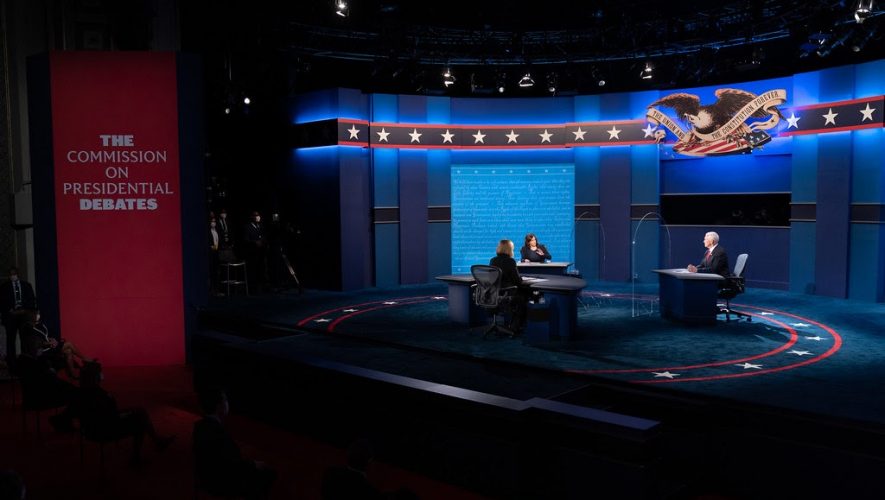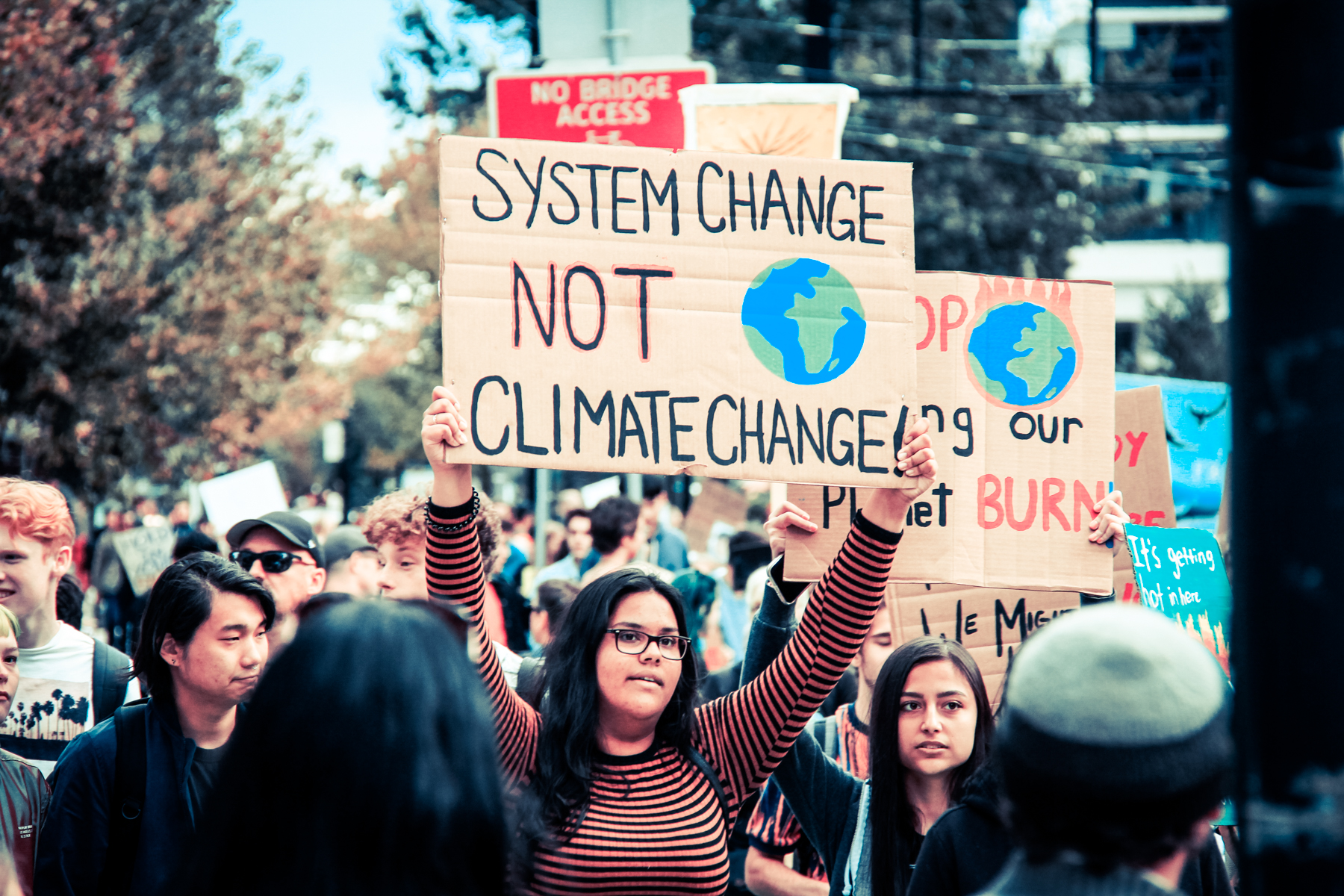If you’re like me, you tuned into the vice presidential debate hoping for a more civil, substantive, and “normal” conversation about the issues impacting Americans, as well as more concrete perspectives about this year’s presidential hopefuls. Following Donald Trump’s abysmal and childish performance in the first debate, I’m sure many people were assuming that Mike Pence would air some semblance of professionalism and grant his opponent basic levels of respect—but even this bare minimum was too high a bar.
Despite moderator Susan Page’s opening announcement about the debate’s rules—which both sides agreed to—things quickly devolved into a ninety-minute brouhaha that prioritized political optics over addressing the concerns of the American people. Presidential debates are typically characterized as a platform for candidates to finalize their messaging to voters regarding certain policies. If that is the purpose of our presidential debates, then this one was a failure.
I watched the debate to measure the amount of time each speaker gave relevant responses. The debate got quite hectic at certain points, causing additional discrepancies. I judged speaking time as relevant if it directly responded to the moderator’s last question or the opponent’s last statement. I tried to be as lenient as possible in my judgements.
Mr. Pence answered his questions only 46 percent of his speaking time, while Kamala Harris responded to them 55 percent of the time. Combined, the candidates spent only half their time actually answering the moderator’s questions. As is commonplace with political rhetoric, the candidates often gave vague and nebulous responses—mentioning constitutional liberties, fighting for the American people, and other buzzword-laden non-answers—to avoid the question. It is a meticulous skill to respond to a question without answering what was actually asked—neither candidate possessed the deftness to do so undetected.
Even more egregiously, the candidates often would disregard the question posed by Ms. Page, and instead respond to statements made by their opponent in the previous section. Despite Ms. Page’s efforts to cover the myriad of topics prepared, the candidates treated topic changes as a mere suggestion.
Mr. Pence and Ms. Harris dodged questions on whether they have talked with their running mates about handling presidential disability. Mr. Pence attacked Joe Biden and the Obama administration for their response to H1N1, while Ms. Harris recounted the night she was chosen to be Mr. Biden’s running mate. Their lackluster responses indicated that neither of the oldest candidates in history have any contingency plans regarding their health. (Yikes.)
At one instance, Mr. Pence slyly pivoted the conversation from a question about protecting Americans with pre-existing medical conditions to the prospect of a Biden administration packing the Supreme Court. The vice president then very pointedly directed the conversation back to Ms. Harris, trying to coax her into commenting on the subject, though she did not succumb to his pressures. After her refusal to answer, Mr. Pence decried her for avoiding the question—which was posed by him, not Ms. Page. It was a perfect little morsel of irony that summed up the entirety of the debate: both candidates dodging tough questions and pointing the finger at their opponent for doing the same thing.
This inevitably brings us back to the moderator’s role in guiding the discussion. I have seen these debates grow more chaotic and less substantive over my lifetime, which challenges the very purpose of the moderator. Ms. Page should be lauded, as she made a concerted effort to fairly split the candidates’ time and keep the debate moving. When things started to go off the rails, she was quick to rein in the candidates. She asked interesting and provocative questions to both candidates and did her best to foster a meaningful conversation of ideas. If only the audience could’ve heard real answers.
Candidates using their rhetorical skills to get them out of a jam is nothing new. In the 2004 vice presidential debate, moderator Gwen Ifil asked both candidates about the rising wave of HIV infections among Black women in the US—a very specific question that was purposely crafted to get the candidates away from their rehearsed talking points and give the American people a candid view of their approaches. Dick Cheney responded by saying that was an interesting fact that he did not know about (and nothing further). The other candidate, John Edwards, launched into a prepared speech about combating AIDS in Africa, which was outside of the question’s scope.
Ms. Ifil was in a similar predicament to Ms. Page, and Ms. Ifil chose not to hound the candidates for evading the question. To her, their lackluster response indicated that they did not know—and did not care—about the issue, and she believed that this would be apparent to the audience. Ms. Ifil’s intentions were right, and many people praised her for the question for years afterward.
The 2004 debate was markedly different from this year’s. Mr. Edwards and Mr. Cheney’s most blatant offense came during that question on HIV/AIDS, but they directly answered most of Ms. Ifil’s questions. Even when they responded to a comment made during a previous section, they would circle back and answer the posed question; this time around, the candidates constantly evaded questions, completely disregarding Ms. Page’s role in promoting discourse.
It may not have been feasible for Ms. Page to follow up on questions due to the debate’s structural constraints. I would have loved it if Ms. Page simply announced that, “For the record, neither candidate answered the question I asked.” A brief and non-provocative statement would have been a suitable punctuation to the candidates’ disjointed back-and-forth.
The role a moderator plays is primarily contingent upon who the moderator is. Ms. Ifil made the decision to not follow up when candidates avoided her questions, but some other moderators, like Tim Russert, were more willing to press the candidates for details.
That said, the last debate shows a significant departure from typical proceedings. Ms. Page’s situation was unique because the candidates were not just ignoring the questions they didn’t want to answer—they were disrupting the agreed-upon format. Each candidate interrupted the other about ten times; but Mr. Pence interrupted the moderator almost three times more than his counterpart (fifty-five times to Harris’ twenty-one).
Ms. Page believed rebuking a candidate for going off-topic would extend beyond her purview as a mediator. But part of Ms. Page’s role was to make sure there was enough time for all of the topics to be covered—which did not happen due to the candidates’ outbursts—as prescribed by the Commission on Presidential Debates. Debate nights can be excellent platforms for the candidates to relay their narratives directly to the public, but that goes out the window if they violate basic rules. There should be no exception for such constant interruptions and disregard for the topics of debate.
The role of moderators always seems to become a central issue after every presidential debate, with the media arguing whether a host did too much or too little. Those analyses often paint a moderator’s actions as a form of partisan favoritism. But the role of the moderator has shifted from regulating and mediating a discussion to refereeing the candidates to make sure they follow the rules.
Our presidential debates used to be emblematic of our ability to conduct civil discourse. We have lost this standard, as these conversations no longer deserve the title “civil.” Debates can be a boxing match even when they are respectful, with the candidates trading heavy blows in the form of substantive, thought-provoking policy discussion. Nowadays, the debate looks more like the candidates are ducking and weaving at the sound of the bell. And that’s a disservice to the American people.



